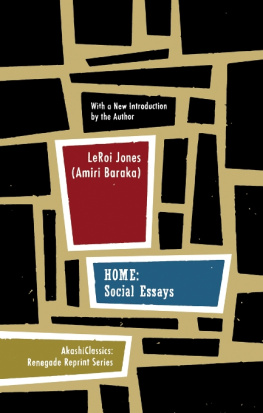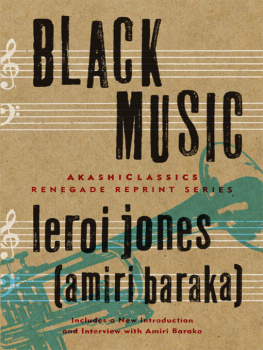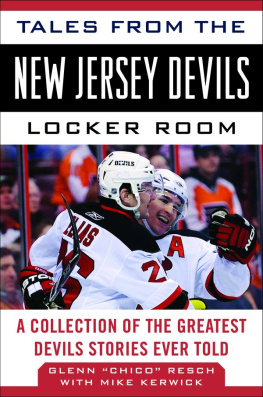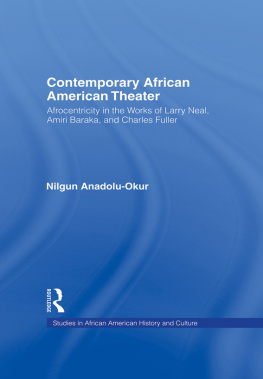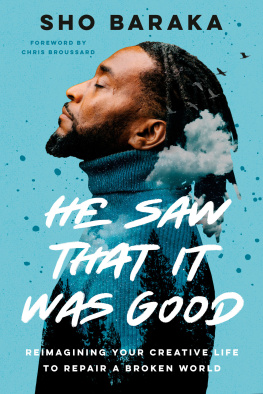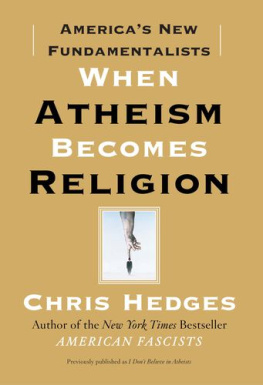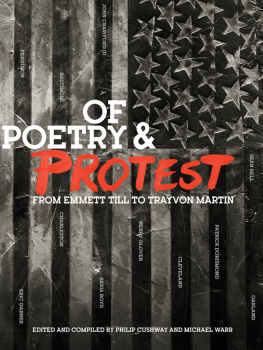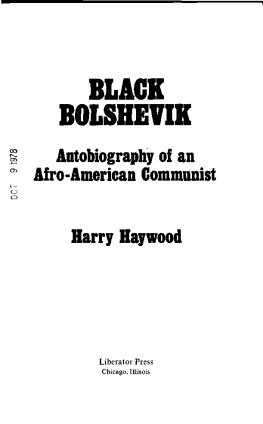
Critical Praise for Amiri Barakas
TALES OF THE OUT & THE GONE (2007)
Winner of a PEN/Beyond Margins Award
A New York Times Editors Choice
An Essence Magazine Best Seller
As this new collection of short fiction (most of it previously unpublished) makes clear, the writer formerly known as LeRoi Jones possesses an outtelligence of a high order. Baraka is such a provocateur, so skilled at prodding his perceived enemies (who are legion) in their tender underbellies, that it becomes easy to overlook that he is first and foremost a writer He writes crisp, punchy sentences and has a fine ear for dialogue In his prose as in his poetry, Baraka is at his best a lyrical prophet of despair who transfigures his contentious racial and political views into a transcendent, outtelligent clarity.
NEW YORK TIMES BOOK REVIEW
A marvelously vital and creative mind at work.
LIBRARY JOURNAL
Baraka remains a prodigiously skilled writer. Tales of the Out& the Gone is an apt reminder of Barakas unique ability to touch on politics, race, and identity in a biting vernacular style.
TIME OUT NEW YORK
In his signature politically piercing and poetic staccato style, Baraka offers a perspective on social and political changes and a fresh view of the possibilities that language presents in exploring human passions Fans and newcomers alike will appreciate Barakas breadth of political perspective and passion for storytelling.
BOOKLIST
Barakas ability to load his words with so much artillery results from his understanding of storytelling Though the resolutions are often delivered like gut-shot punch lines, the circumstances behind the varied plots are complex, and are something too few people take the time to confront.
SAN FRANCISCO CHRONICLE
Baraka makes his prose jump with word coiningouttelligent, overstandand one-liners The humor and off-the-wall jaunts tackle real issues of race, otherness, and power with pointed irony.
NEW YORK PRESS
This literary elders work, no matter what genre, has never failed to excite, never failed to elucidate and examine the human condition with scathing insight The books charm lies in its tautness. No words wasted here. Tales commands you to pay close attention, lest you miss a great joke or a heartbreaking truth.
BLACK ISSUES BOOK REVIEW
Baraka unabashedly steps on toes, but does it in such a way that you close the book thanking him for it. He bends the English language to his liking without stopping to explain himself, which is refreshing from both ideological and technical perspectives.
IDAHO STATESMAN
The short fiction here shows controversy is nothing new for the last poet laureate of New Jersey Baraka certainly hasnt gone soft.
TIME OUT CHICAGO
Tales of the Out & the Gone displays Barakas increasing literary playfulness, intellectual exploration, and passion for intuitive abstract language. The book introduces new readers to Barakas groundbreaking and ever-changing style.
EBONY
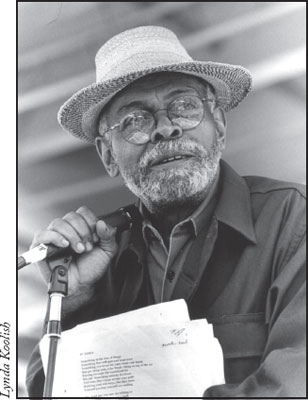
AMIRI BARAKA (previously known as LeRoi Jones) is the author of numerous books of poetry, fiction, and nonfiction. He was named Poet Laureate of New Jersey by the New Jersey Commission on Humanities, from 20022004. His most recent book, Tales of the Out & the Gone (Akashic, 2007), was a New York Times Editors Choice and a winner of the 2008 PEN/Beyond Margins Award. He lives in Newark, New Jersey.
HOME

Published by Akashic Books
Originally published in 1966 by William Morrow and Company, Inc.
Copyright 1961, 1962, 1963, 1964, 1965, 1966, 1971, 2009 by LeRoi Jones/Amiri Baraka
ISBN-13: 978-1-933354-67-5
eISBN-13: 978-1-617750-50-2
Library of Congress Control Number: 2008925938
All rights reserved. No part of this book may be reproduced or utilized in any form or by any means, electronic or mechanical, including photocopying, recording or by any information storage and retrieval system, without permission in writing from the Publisher.
First Akashic Books printing
Some of the essays in this volume originally appeared in an earlier form in the following publications:
Cavalier, American Sexual Reference: Black Male
Evergreen Review, Cuba Libre
Kulchur, Brief Reflections on Two Hot Shots, Tokenism, and Expressive Language
Liberator, The Revolutionary Theatre
Midstream, What Does Non-Violence Mean?
The Nation, In the Ring (reprinted in this volume under the title The Dempsey-Liston Fight)
Poetry, A Dark Bag (a review)
The Saturday Review, The Myth of a Negro Literature
New York: The Sunday Herald Tribune Magazine, LeRoi Jones Talking
AkashiClassics: Renegade Reprint Series
c/o Akashic Books
PO Box 1456
New York, NY 10009
info@akashicbooks.com
www.akashicbooks.com
ALSO FROM AKASHICLASSICS: RENEGADE REPRINT SERIES
Black Music
by LeRoi Jones (Amiri Baraka)
(forthcoming in fall 2009)
The Hungered One
short stories by Ed Bullins
These Weights and Measures
for Vashti, Kellie and Lisa,
three twentieth-century foxes.
Table of Contents
T he essays in this book reflect a period of great change and excitement. The title was meant not only to speak of my attempts to analyze and understand what life was like here in the U.S. as the 1950s came to an end and the turbulent 60s swept in, but for me, it was also a conscious attempt to home in on both where I was coming from (literally) and where I was trying to get back to, spiritually and finally, on the very real side.
One heavy and aggravating problem with these early writings is that Ive long since changed my views on some topics. There is a neophyte Black Nationalist tag to this book, yet I have been a Marxist since the middle 70s. For instance, the homophobic language in several of the essays, including American Sexual Reference: Black Male, using the word fag homeboy style to refer to the right-leaning liberalism of too many Americans, males as well as females, is wrongheaded and unscientific.
In actuality, the attack was on a social class made comfortable from the super-profits bombed and machine-gunned out of the Third World (and it should be obvious that there has grown a whole sector of Negroes participating in this as well). The sexual reference comes from a ghetto language which used homosexuality as a metaphor for weakness, when in all truth, physically, there were even in my own youthful experience very open homosexuals who could kick most of the straight dudes behinds. Not to mention the homosexual giants we all have known, who have always been out front sexually and politically. Now I must openly regret and apologize for the use of that metaphorically abusive term that was then part of my vocabulary.
These essays were shaped by the beginning of the Civil Rights movement and surrounding events, including the murder of Emmett Till in Money (you dig?), Mississippi, and the photo of his destroyed face inside Jet magazine; Dr. Martin Luther Kings marriage to Coretta Scott and their arrival in Montgomery, Alabama; the arrest of Rosa Parks, an experienced activist refusing to sit in the back of a Montgomery bus; the subsequent mobilization and organization of the black community of Montgomery; and the election of Martin Luther King, with his new Ph.D. from Boston University, to the leadership of the Montgomery Improvement Association.
Next page
